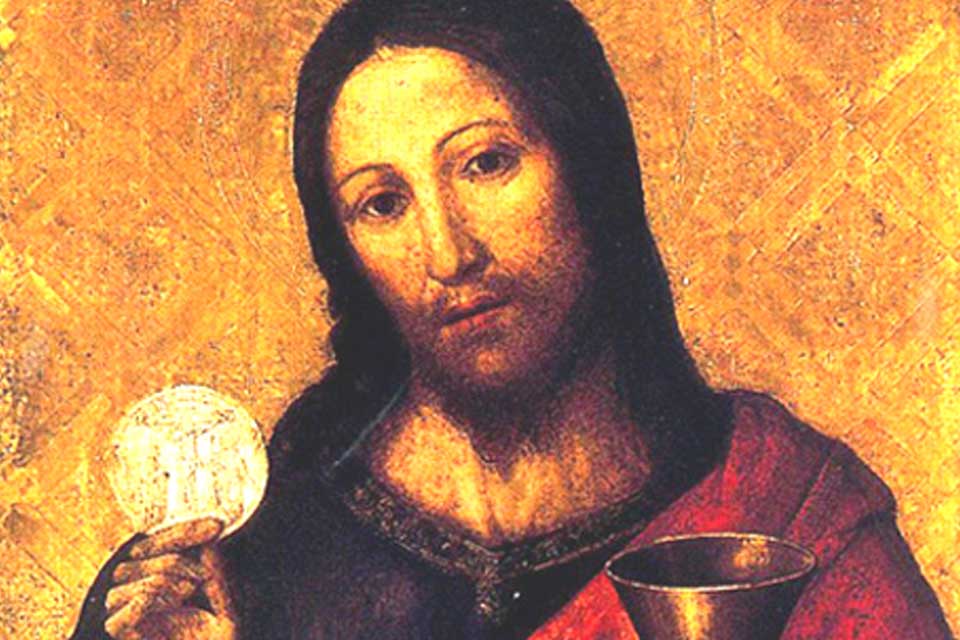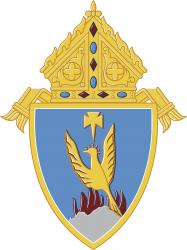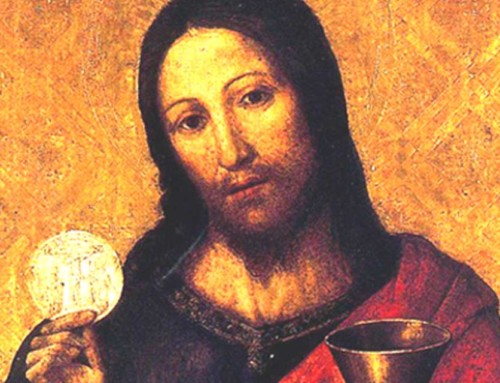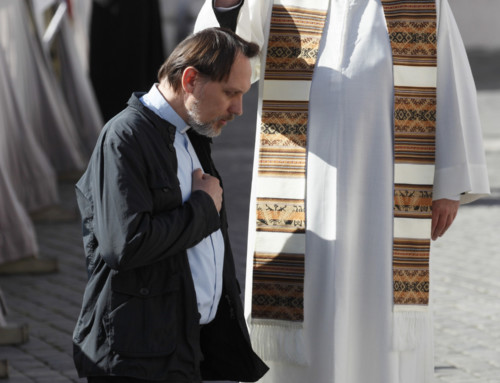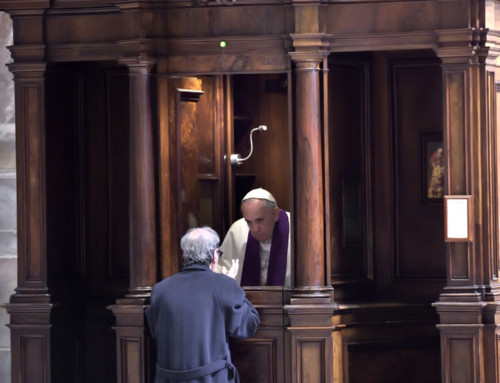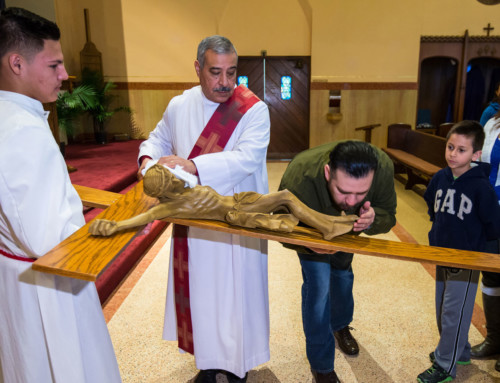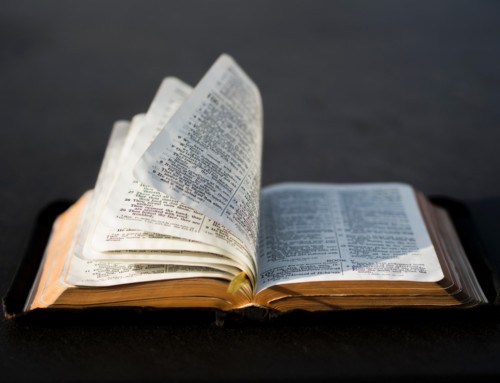The Last Supper
The account of the institution of the Eucharist may be found in the Gospels of Matthew, Mark, and Luke as well as in Paul’s First Letter to the Corinthians (see Mt 26:17-29; Mk 14:12-25; Lk 22:7-20; 1 Cor 11:23-26). Jesus chose the Passover feast as the time in which he would institute the Eucharist and would undergo his dying and rising (cf. CCC, nos. 1339-1340). With the institution of the Eucharist, Jesus gave the Passover its new and definitive meaning. He showed himself to be the High Priest of the New Covenant, offering himself as a perfect sacrifice to the Father. Jesus changed the bread and wine into his Body and Blood, given now as an offering for the salvation of all people.
For I received from the Lord what I also handed on to you, that the Lord Jesus, on the night he was handed over, took bread, and, after he had given thanks, broke it and said, “This is my body that is for you. Do this in remembrance of me.” In the same way also the cup, after supper, saying, “This cup is the new covenant in my blood. Do this, as often as you drink it, in remembrance of me.” For as often as you eat this bread and drink the cup, you proclaim the death of the Lord until he comes. (1 Cor 11:23-26)
By the words “Do this in memory of me,” Jesus commanded the Apostles and their successors to repeat his actions and words
“until he comes again.” From earliest times, the Church has remained faithful to this command. Particularly on Sunday, the day of Christ’s Resurrection, the faithful has gathered for the Breaking of the Bread. This practice has continued unbroken for two thousand years right up to the present day.
In the Gospel of John, instead of an account of the institution of the Eucharist, there is the narrative of the foot washing (Jn 13:1-20) at the beginning of the Last Supper, which sets the tone of humble service, exemplified by Christ and fulfilled in his death on the Cross. The Church has selected this Gospel for the Holy Thursday liturgy, highlighting Christ’s teaching: “If I, therefore, the master and teacher, have washed your feet, you ought to wash one another’s feet. I have given you a model to follow, so that as I have done for you, you should also do” (Jn 13:14-15).
Christ’s Last Supper Discourse (Jn 14:1–17:26) reflects Eucharistic themes of divine love, a union with Christ as intimate as a branch is to a vine, and a priestly prayer for the Apostles and those who would believe through them.
This article is an excerpt from the United States Catholic Catechism for Adults (Washington, DC: USCCB, 2006) 216-217.
Copyright © 2006 United States Conference of Catholic Bishops, Washington, D.C. Used with permission. All rights reserved.

